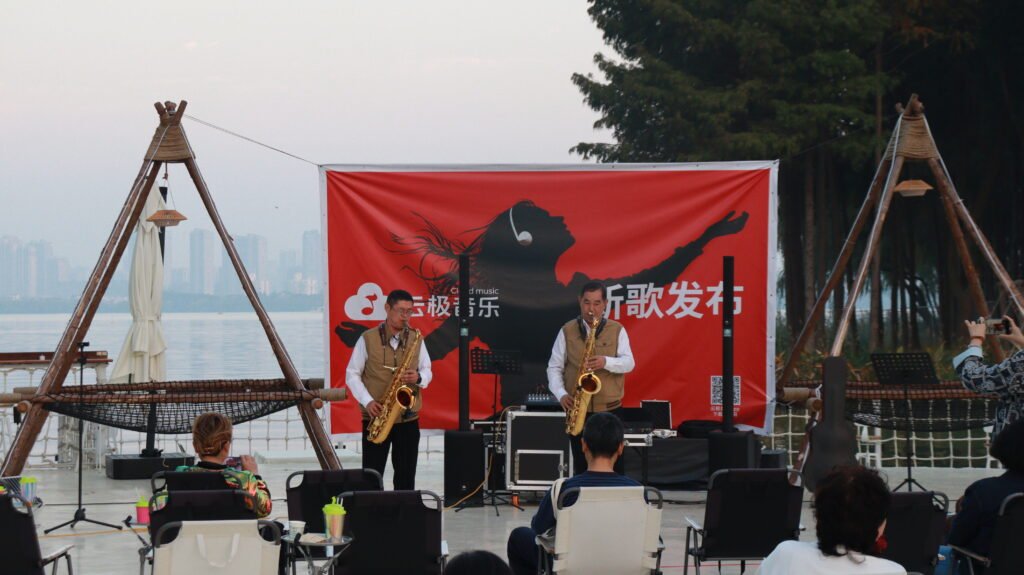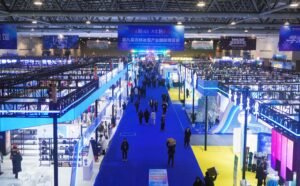The Wuxi National Orchestra (无锡民族乐团), the resident city orchestra of Wuxi, performs classical works of traditional Chinese music while also organizing innovative, branded concert series. Much like in Turkish music, local folk traditions are reinterpreted through symphony orchestras, merging violins, cellos, and basses into a unique harmony. For example, pieces such as the “Second Erhu Concerto – Scenery of Taihu” (《二胡第二协奏曲——太湖风情》) and “Liangxi Sound Poem” (《梁溪音诗》) have been performed by the Wuxi National Orchestra and have received provincial-level awards. The orchestra’s affiliated Tianyun Club (天韵社) also undertakes significant projects. Although Sichuan Opera is historically rooted in Sichuan and the world-famous version is Peking Opera, China’s operatic culture is not limited to these. The ancient Kunqu Opera, which originated in this region, is also performed by the club. Thanks to the training center located inside the main building, motivated and talented young people receive professional guidance as they build the foundations of orchestral musicianship. Notably, the orchestra’s flagship instrument continues to be the Erhu.
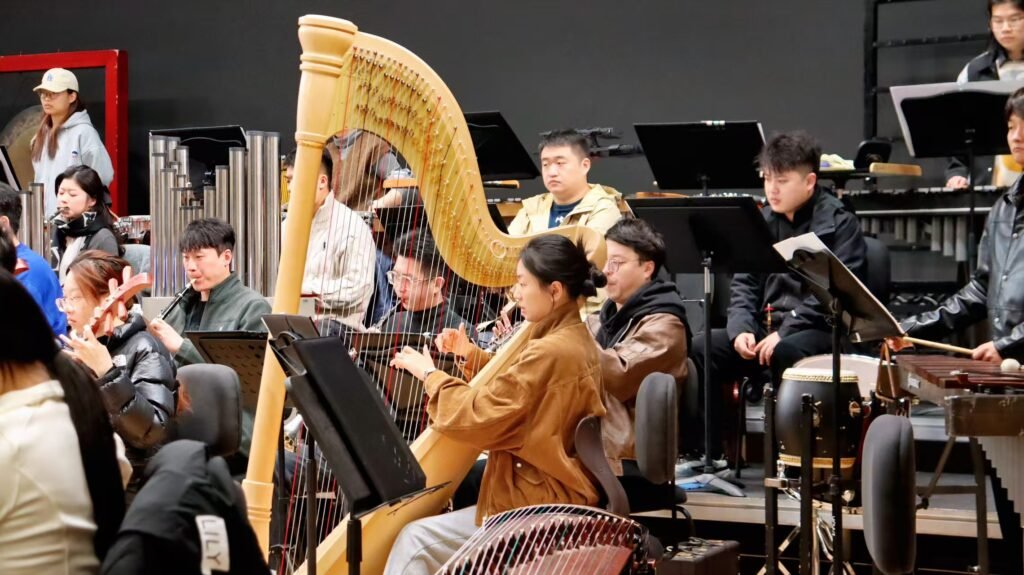
The city’s relationship with music is not limited to public institutions or formal educational programs. Many individuals contribute to music and art history based purely on personal interest. One of the most remarkable private collections is the Echo Collection (Private Music Collection Museum) (回声收藏·私人音乐收藏馆), founded by a collector named Kent. The main theme of the collection centers on the Sony Walkman TPS-L2, the world’s first portable cassette player, which was once highly popular in Türkiye and around the globe, along with its various models. The museum also features Michael Jackson’s signed records, the complete album collection of Teresa Teng, and elite albums of bands such as Pink Floyd and Nirvana. Designed like a museum, the space is open to visitors free of charge. What distinguishes this collection is that the equipment on display is still fully functional. Many cassette and vinyl recording devices remain in working condition, allowing visitors to witness history firsthand.
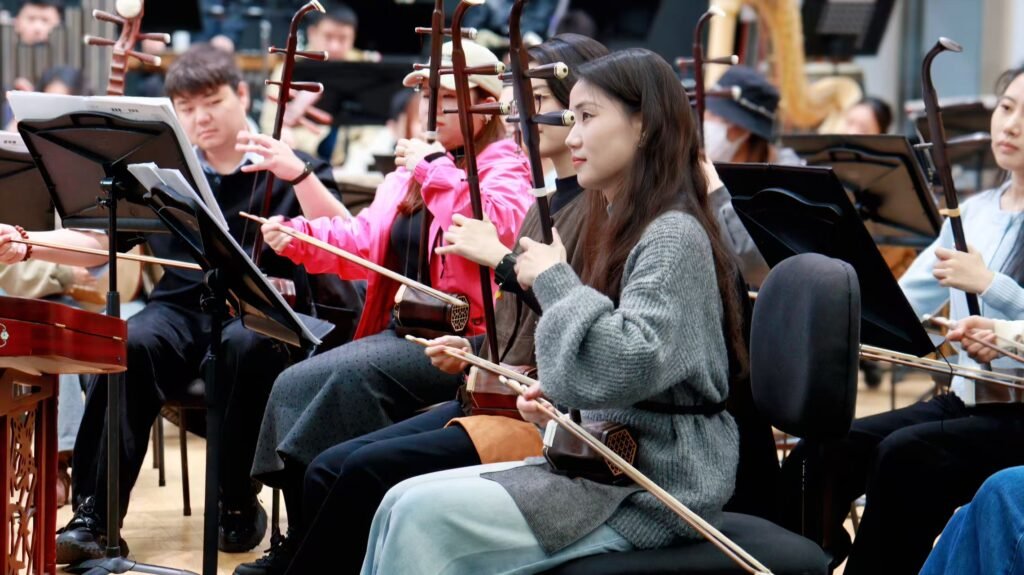
Although the city’s bond with the Erhu is strong, other musical instruments also attract substantial interest—most notably the accordion industry. The Jiangyin Jinbei Angel Musical Instruments Company (江阴金杯天使乐器有限公司) is the headquarters of China’s National Accordion Reed Research Base and the National Standardization Technical Committee Accordion Working Group. Starting with harmonica production in the 1980s, the factory now produces an average of 2,000 accordions per month and employs around 200 workers. What makes this place special is that each accordion produced here is entirely handmade. Approximately three months of craftsmanship go into a single accordion, and it is sold only once perfected. Around 50% of production is exported, while the remaining 50% is sold domestically. The accordions are shipped to Europe, Southeast Asia, and South America. We learned that handmade accordions from this factory receive particularly high demand from South America and Italy.
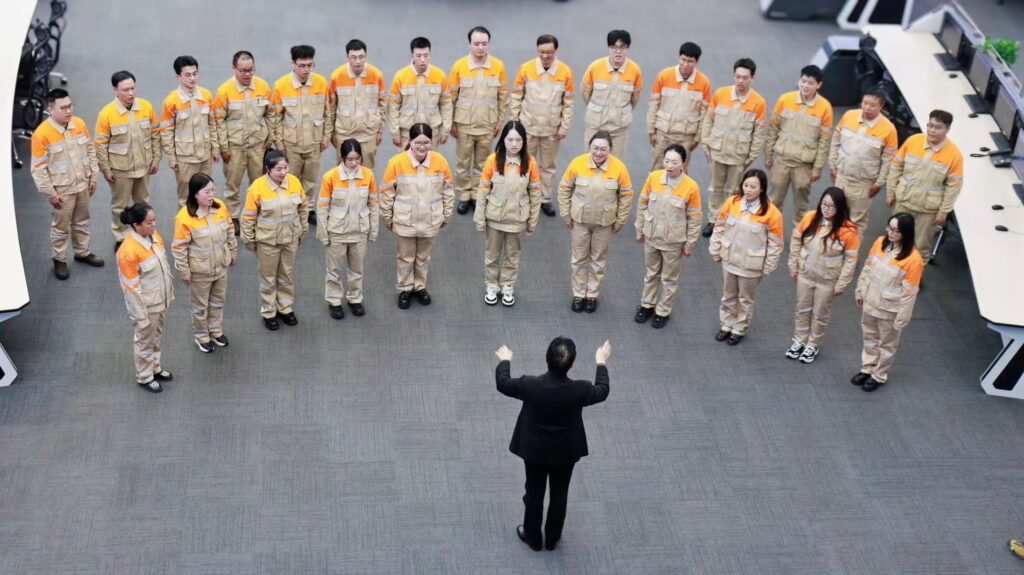
Another remarkable aspect of this factory is the Jinbei Kindergarten (金杯幼儿园) established for workers’ children. While Turkish labor law requires workplaces with more than 150 employees to provide a childcare facility, no such obligation exists in China. However, this factory voluntarily created its own kindergarten, which is especially meaningful given that most of its workers are women. The curriculum even includes compulsory accordion lessons, allowing children to become familiar with the instrument from an early age.
The final stop of our Wuxi trip was CITIC Pacific Xingcheng Special Steel (中信泰富兴澄特钢), a cornerstone of China’s iron–steel industry. This state-owned company serves sectors such as shipping and rail transportation. As one would expect from a city where music is deeply embedded in daily life, the factory workers are also passionate about music. From the moment visitors enter, workers greet them with marching songs and popular tunes. The main reason is the factory’s amateur “Factory Choir,” composed entirely of company employees. They have appeared many times on national television, including China Central Television (CCTV)’s program “Choir Leader.” In the 2024 May 1st Labor Day broadcast, they achieved significant recognition by performing the piece “Call of the Era” (时代的号召).

